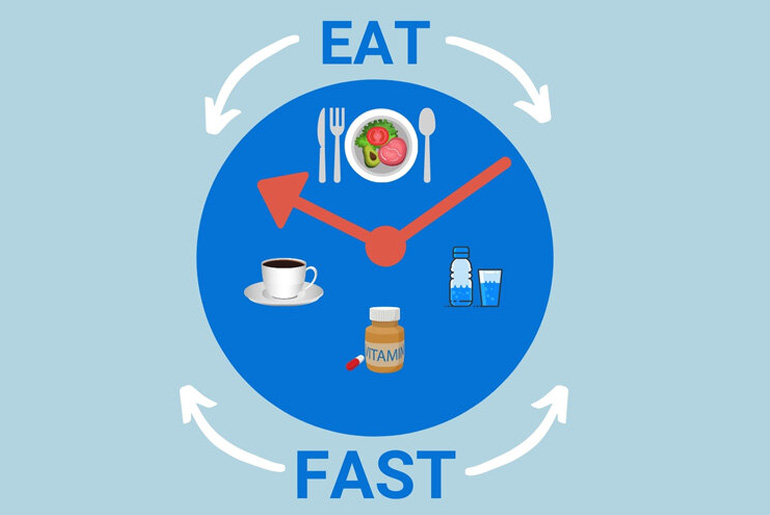The claim that fasting can cure illnesses has sparked significant debate and curiosity on social media. Advocates of this practice often point to intermittent fasting and extended fasting as effective methods for promoting overall health, weight loss, and even reversing certain chronic conditions. They argue that fasting enhances autophagy, the body’s natural process of cleaning out damaged cells and regenerating new ones, potentially leading to improved metabolic health and reduced inflammation.
Proponents of fasting frequently cite the longevity and health of their ancestors as evidence. For instance, Indian television actor Chhavi Mittal shared a video on Instagram recounting how her mother told her about her grandfather, who lived to 101 years old. According to Mittal, her grandfather rarely took antibiotics or even paracetamol when he was ill. Instead, he would fast, believing that everything is related to the gut. By refraining from eating, he allowed his gut to heal, and he would typically recover within two days.
While fasting may offer some health benefits, it is crucial to understand that consuming complete, nutrient-dense foods is essential for maintaining health and protecting the body from disease. These foods contain unique components that work synergistically in ways that supplements cannot replicate. The gut microbiome, a population of bacteria and other microorganisms residing in the human digestive tract, plays a critical role in overall health. Maintaining a healthy balance of these bacteria, known as homeostasis, is vital. Conversely, an imbalance, known as dysbiosis, can contribute to chronic illnesses such as inflammatory bowel disease, obesity, cancer, and autism.
The gut microbiome, primarily located in the large intestine, includes trillions of bacteria, viruses, and fungi. It is essential for digestion and supports immunological, heart, and brain functions. The microbiome contains more bacterial cells than human cells, effectively functioning as an extra organ. A healthy diet can reduce the risk of diseases such as heart disease, diabetes, and certain cancers, and improve overall well-being. However, diet alone cannot replace medical treatment. Genetics, lifestyle, and environmental factors also play critical roles in health. Therefore, while a healthy diet is important, medical care remains essential for treating many conditions.
While fasting might offer some health benefits and historical anecdotes suggest its efficacy in certain cases, it is not a cure-all. Consuming a balanced diet rich in nutrients is crucial for maintaining health, and medical treatment should not be disregarded. Both diet and medical care are necessary for a comprehensive approach to health and well-being.
Not Taking Antibiotics:
The decision to take antibiotics when you’re sick depends on the nature of your illness. Antibiotics are specifically designed to combat bacterial infections and are ineffective against viral infections. Taking antibiotics unnecessarily can lead to antibiotic resistance, making it harder to treat bacterial infections in the future. Additionally, unnecessary antibiotic use can disrupt the natural balance of bacteria in your body, including your gut microbiome, which plays a vital role in overall health. Therefore, it is crucial to follow medical advice and only take antibiotics when prescribed by a healthcare professional for bacterial infections that require them.
Diet During Illness:
Maintaining a balanced diet is generally recommended even when you’re sick, as proper nutrition supports your immune system and overall health. However, during certain illnesses, especially those affecting the gastrointestinal tract, you may need to adjust your diet. For example, if you experience symptoms like nausea, vomiting, or diarrhea, focusing on clear liquids or easily digestible foods can be beneficial until your symptoms improve. Staying hydrated is also essential. It’s important to listen to your body’s cues regarding food intake and make dietary adjustments as necessary to support recovery.
Gut Health and Disease:
The gut plays a crucial role in overall health, impacting immune function, digestion, and even mental health. The health of your gut microbiome—the population of bacteria and other microorganisms in your digestive tract—can influence various aspects of your well-being. While not every disease or sickness is directly related to the gut, maintaining a healthy gut microbiome is essential for overall health. Factors such as diet, stress, medications, and lifestyle can significantly impact gut health. Some conditions, particularly gastrointestinal infections or disorders, have clear connections to gut health. However, other illnesses may have more complex causes involving genetics, environmental factors, and overall immune system function. Maintaining a healthy gut microbiome through a balanced diet and healthy lifestyle can contribute to better overall health and potentially reduce the risk of certain diseases.
While supporting your body’s natural healing processes and maintaining gut health are important, managing illness should be individualized based on the specific condition and medical advice. It is essential to seek guidance from healthcare professionals to ensure appropriate steps for recovery and overall health maintenance. Medical experts caution that although some studies suggest potential benefits of fasting, it is not a one-size-fits-all solution and may not be suitable for everyone, especially those with underlying health conditions. Therefore, approaching fasting with careful consideration and seeking professional medical advice is crucial to ensure it is done safely and effectively.
Disclaimer:
The information contained in this article is for educational and informational purposes only and is not intended as a health advice. We would ask you to consult a qualified professional or medical expert to gain additional knowledge before you choose to consume any product or perform any exercise.








